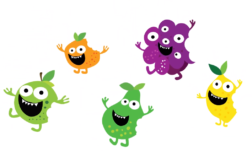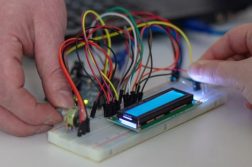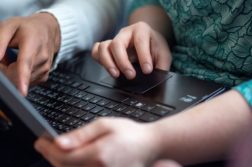These frequently asked questions help you to understand what bioeconomy engineering is about.
You will find the full study content here: Curricula
What do I learn in Bioeconomy engineering?
You will learn how data and digitalization can be used to improve sustainability of natural resources use through digital innovations, new services and products and technology development. You will learn about digital data collection tools and methods, examine and develop data analytics tools and methods and design and create digital and data-driven products and services to produce food, energy, biomaterials and services responsibly and sustainably following the principles of circular economy.
When and how can I apply?
First, you need to follow us in our website, where you can find information about when our application period starts, which documents are needed and what the procedure and schedule is. When the application period is on, you can apply in www.Studyinfo.fi.
Why is bioeconomy engineering important?
Bioeconomy is about production and services based on renewable natural resources. Sustainable resource management deals with critical issues of food security and health, energy and water and links closely to resilient and diverse ecosystems. When digital technologies are used for optimizing complex bioeconomy systems, it makes bioeconomy smart. In smart bioeconomy data and digitalization are used to promote a responsible use of our planet’s resources, thus bioeconomy engineering is about the sustainable well-being of humans and the environment, for sustainable societies and about combating climate change.
How much ICT do I need to understand to apply?
You are not expected to have any background knowledge on programming or software development or digitalization. To complete your studies successfully, you need motivation to become a specialist who combines the knowledge of bioeconomy to data and digitalization.
How good should my English language level be?
If you can understand and speak basic English you will manage. There will be some new vocabulary, but you will learn it during your studies with the rest of the students. The most important thing is that you have the courage to speak, even if your English isn’t perfect! And most of us are not native English speakers anyway.
Why study bioeconomy engineering in Finland and Forssa?
Finland has many success stories on sustainable and responsible forestry, agriculture and water. Bioeconomy has been and still is the backbone of the Finnish economy. Forssa is a national research and regional business hub for smart bioeconomy with many innovative companies, which cooperate closely with HAMK. Forssa is a small town which offers a traditional and safe learning environment.
Forssa town is proud to welcome all students, read more on Forssa:
Who is teaching bioeconomy engineering?
The Forssa team of teachers is a multidisciplinary group of professional teachers. Some of the teachers are specialized in engineering topics, others are specialists in bioeconomy. All teachers have work experience in private business. Visiting experts, also from the business world, enrich the teaching with their experiences and knowledge. HAMK teaching is organized in modules, and every module has a group of teachers working together. In the small campus teachers learn to know every student, and they can offer support and opportunities needed for everyone.
How do I learn to link bioeconomy and engineering?
In HAMK you learn through integrated and customer-centered real-life projects owned by organisations and companies. During your studies, you will see examples of how digitalization is used in bioeconomy, and you will apply your learning to world-of-work challenges. The teaching methodology helps you understand the real needs of companies, entrepreneurs and society.
I am interested in becoming an entrepreneur. Do studies in HAMK help me?
Entrepreneurship building is embedded in bioengineering studies. In HAMK cSchool and Start-up business school you will work with models, processes, strategies and understand the ecosystems for self-employment. If you have plans to become self-employed, you may test and develop your own business idea during your studies.
Satu Suoranta, Education Assistant
Häme University of Applied Sciences (HAMK)



